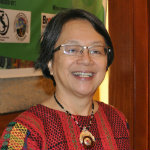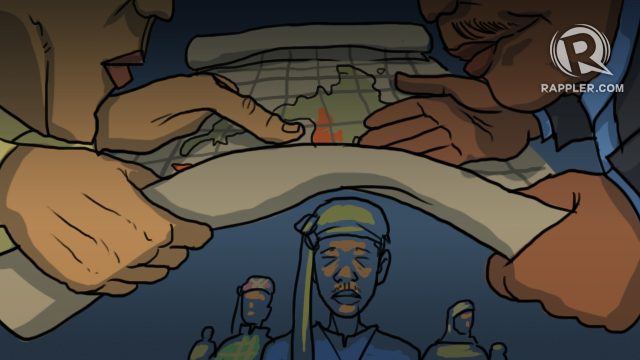SUMMARY
This is AI generated summarization, which may have errors. For context, always refer to the full article.
 Part 2 of 2
Part 2 of 2
BBL falls short on UN indigenous peoples rights – Part 1
As I write this second part of my think piece, the ad hoc House committee already passed its version of House Bill No 4994 through 50 yes votes. There were 17 representatives who voted no and one who abstained. I will comment on this draft House Bill now renamed as “An Act Providing the Basic Law for the Bangsamoro Autonomous Region…”
In addition to the positive changes which I mentioned in my first article, I welcome some of the changes found in this new draft. The language in Section 2(o) (Ancestral Domains/Ancestral Lands of the non-Moro indigenous peoples) of Article V (Powers of Government) is very much appreciated. These include the inclusion of the term “ancestral domains,” the transfer of this subsection away from Exclusive Powers to Concurrent Powers, the establishment of a Ministry for Non-Moro Indigenous Peoples, and the reference to RA 8371 or the Indigenous Peoples’ Rights Act (IPRA).
Affirming that the Bangsamoro government and the national government shall cooperate and coordinate through existing national laws such as IPRA to create policies for the identification, delineation, and titling of ancestral domains is crucial. This needs to be further strengthened, however, to clearly state that the objective of the cooperation is to guarantee the recognition and protection of all the basic human rights of non-Moro indigenous peoples. These rights are listed in Article VIII, Section 5 of the draft. These are also enshrined in the IPRA and the UN Declaration on the Rights of Indigenous Peoples (UNDRIP).
While these changes will put some balance in the draft law, I still have a serious concern on an issue which will derogate the rights of the non-Moro indigenous peoples.
Ancestral lands and domains
The concurrent powers exercised through IPRA and the basic rights of non-Moro indigenous peoples in Section 5, Article VIII are contradicted by this provision: The use of judicial affirmation as the means to recognize rights to land as stated in letter (d) of Section 4 (Other Exclusive Powers) under Article V. The Bangsamoro government is given the exclusive power to “recognize constructive or traditional possession of lands and resources by indigenous cultural communities subject to judicial affirmation…of imperfect titles under existing laws and this applies to ancestral lands.”
Judicial affirmation presumes that the ancestral domains or ancestral lands of non-Moro indigenous peoples are public lands which they are only occupying and, thus, need judicial affirmation to confirm their rights over these lands. But it is not clear where this judicial affirmation will come from. Will this be from the Shar’iah Court, the National Commission on Indigenous Peoples (NCCP) or the courts?
WATCH: Rappler Talk: Are the Lumad victims in war and peace?
Ancestral domain and land rights of indigenous peoples are not the same as public lands occupied by landless informal settlers. “Native Title” as defined in IPRA “refers to pre-conquest rights to lands and domains, which, as far back as memory reaches, have been held under a, claim of private ownership by ICCs/IPs, have never been public lands and are thus indisputably presumed to have been held that way since before Spanish Conquest.” (Par 1, Chapter 11, Section 3, IPRA).
The “Native Title” or Cariño Doctrine, which is the foundation of ancestral domains and ancestral land rights and claims of indigenous peoples, and which has been mentioned several times in the draft approved by the ad hoc committee should not be interpreted or used in a way which will weaken this legal doctrine.
Judicial affirmation is not mentioned at all in the provisions of IPRA, particularly in Chapter III (Rights to Ancestral Domain) and Chapter VIII (Delineation and Recognition of Ancestral Domains).
IPRA states that self-delineation is the guiding principle in the identification and delineation of ancestral domains. Well defined principles, policies, and procedures are laid out in Chapter VIII (13 sections) for the delineation of ancestral domains and ancestral lands.
The non-Moro indigenous peoples should have the option to choose which system they will use for the recognition and delineation of their ancestral domains and ancestral lands.
It is my view that judicial affirmation as used in this draft undermines the rights of the non-Moro indigenous peoples to their ancestral domains and ancestral lands, and their rights to natural resources contained in the IPRA and the UNDRIP.
The draft law mentioned that a law will be enacted by the Bangsamoro Parliament, which recognizes rights of non-Moro indigenous peoples to natural resources within their native titles as provided for in Section 11, Article XII. This law should be coherent with the standards set in the UNDRIP and in the IPRA.

Non-Moro indigenous peoples
I view with great concern the comment of MILF chief negotiator Mohagher Iqbal, who said that “among the amendments so far made to which the MILF did not “accept in principle” was the inclusion of the Indigenous Peoples’ Rights Act in the proposed Bangsamoro law.”
He also mentioned that IPRA was not part of the peace deal. This indicates that there is more work to be done.
Clearly, the strong lobby mounted by affected indigenous peoples from Mindanao and their support groups and the efforts of Congresswoman Nancy Catamco and other House members led to the changes. I congratulate them for these achievements.
I hope that the next processes such as the plenary will address the concerns I raised. I also hope that technical working groups will be established by the Senate, ensuring the full and effective participation of the leaders and representatives of the non-Moro indigenous peoples.
It is very unfortunate that this meaningful participation was not seen in the processes undertaken by the ad hoc committee.
I am hopeful that good faith and a sincere commitment to uphold the rights of indigenous peoples will guide the path towards the final enactment of the Bangsamoro Law.
Equality and non-discrimination still remain the bedrock of International Human Rights Law. Therefore, it is unacceptable to see a law which relegates non-Moro indigenous peoples as second class citizens in their own ancestral domains and territories. – Rappler.com
Victoria Tauli-Corpuz is the current United Nations Special Rapporteur on the Rights of Indigenous Peoples, appointed by the UN Human Rights Council for this mandate from 2014-2017. She is an independent human rights expert focusing on indigenous peoples’ rights and women’s rights. She is an indigenous person, a Kankana-ey Igorot, from the Mountain Province in the Cordillera Region.
Add a comment
How does this make you feel?
There are no comments yet. Add your comment to start the conversation.